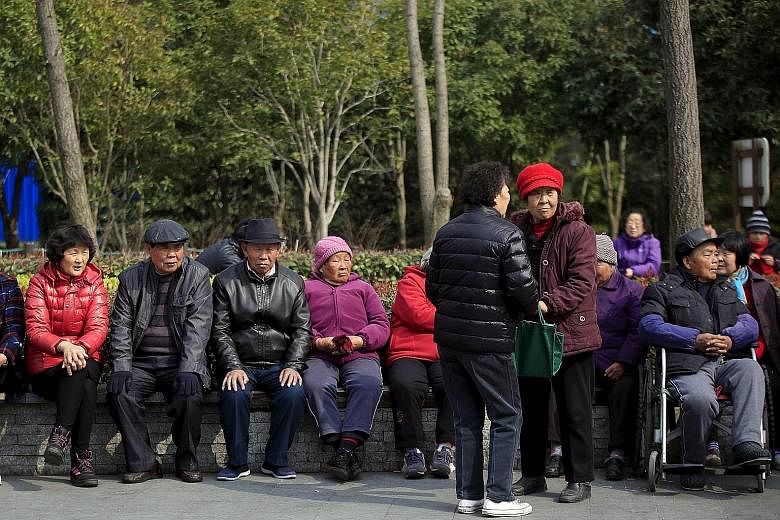BEIJING • China's political advisers have advocated better mental healthcare for the elderly at their annual meeting.
Mr Rao Geping, a law professor of Peking University and a political adviser, said the elderly population's demand for mental healthcare has risen, but that such care is in short supply.
Very few institutes are providing such support, said the member of China's top political advisory body, the Chinese People's Political Consultative Conference (CPPCC), which ended its annual session yesterday.
A poll of 1,000 elderly people, conducted last month in the eastern Suzhou city, showed 12.5 per cent had mental health disorders. When asked what kind of care they preferred, more than 90 per cent chose psychological care over material support.
More psychologists, or those with professional knowledge, should be available in elderly institutes and communities, Mr Rao said.
Last year, China had more than 220 million people aged over 60, accounting for 16.1 per cent of the country's total population, official data showed. The number will grow to 300 million by 2025.
Mr Zhang Shiping, also a political adviser and deputy head of the social and legal affairs committee of the CPPCC National Committee, also made calls to improve healthcare for the growing number of elderly in the country.
At least 70 per cent of the elderly people have chronic diseases and many of them often experience mental disorders, he said. More should be done to improve their lives and restore their dignity, he added.
Mr Li Zan, a councillor at the Beijing Shifangyuan Elderly Hospice and Mind Care Centre, a non-profit group, agreed. "As people get older and their health decays, their demand for psychological consolation will also rise," he said.
Since its founding in 2011, the group has opened 18 elderly institutes and provided healthcare and support to over 54 communities.
The Beijing Civil Affairs Bureau, for its part, has started a hotline for the elderly. Mr Li Hongbing, deputy director of the bureau, said many elderly people have received help through the hotline service.
"It has helped prevent suicide and mental deterioration for those who lost their children, and helped them manage emotions," he said.
XINHUA

